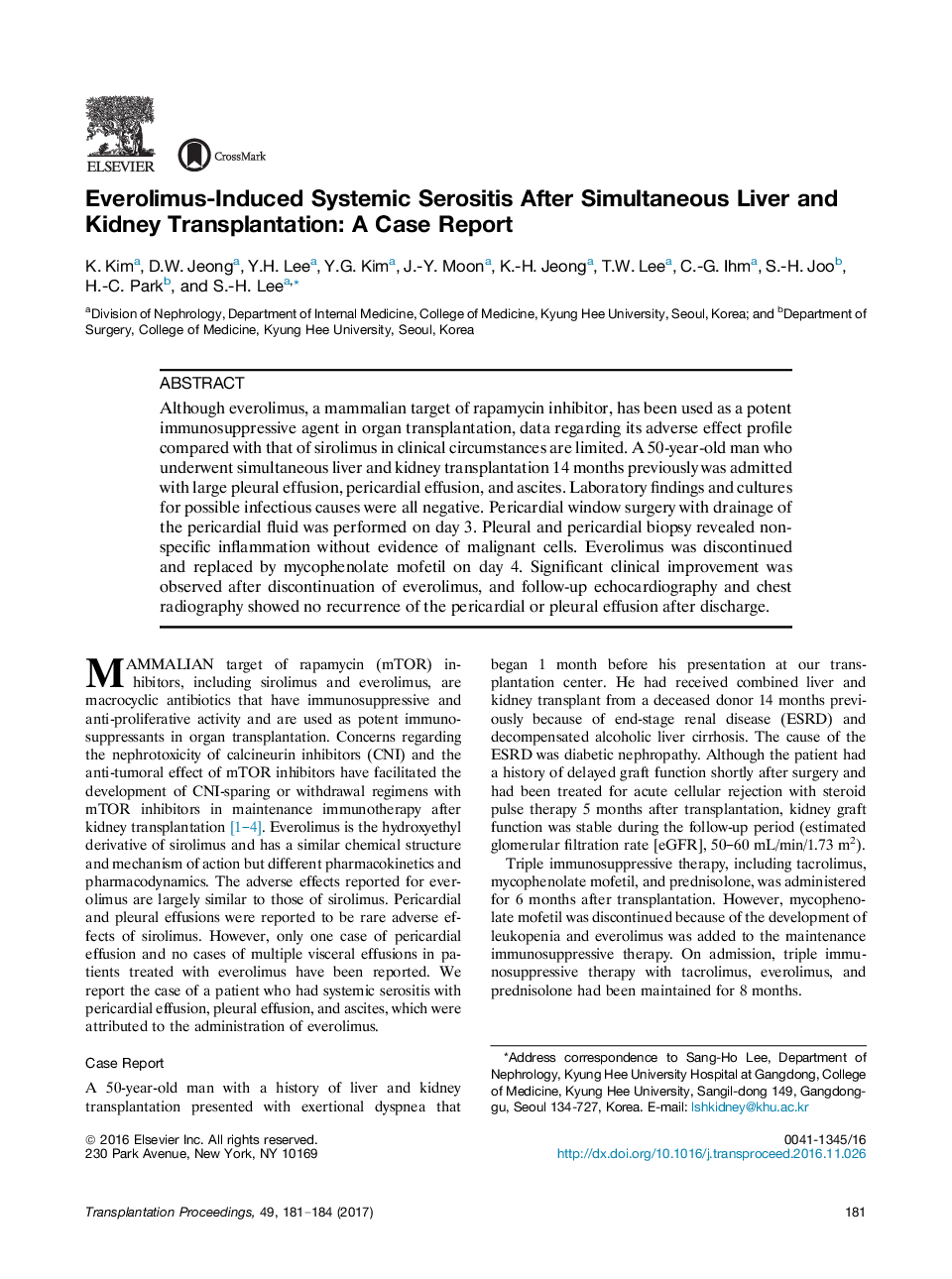| Article ID | Journal | Published Year | Pages | File Type |
|---|---|---|---|---|
| 5729314 | Transplantation Proceedings | 2017 | 4 Pages |
â¢Pericardial and pleural effusions were rare adverse effects of an mTOR inhibitor.â¢Everolimus-induced multiple visceral effusion was not reported.â¢Pleural and pericardial biopsy results suggest systemic serositis associated with everolimus.
Although everolimus, a mammalian target of rapamycin inhibitor, has been used as a potent immunosuppressive agent in organ transplantation, data regarding its adverse effect profile compared with that of sirolimus in clinical circumstances are limited. A 50-year-old man who underwent simultaneous liver and kidney transplantation 14 months previously was admitted with large pleural effusion, pericardial effusion, and ascites. Laboratory findings and cultures for possible infectious causes were all negative. Pericardial window surgery with drainage of the pericardial fluid was performed on day 3. Pleural and pericardial biopsy revealed non-specific inflammation without evidence of malignant cells. Everolimus was discontinued and replaced by mycophenolate mofetil on day 4. Significant clinical improvement was observed after discontinuation of everolimus, and follow-up echocardiography and chest radiography showed no recurrence of the pericardial or pleural effusion after discharge.
